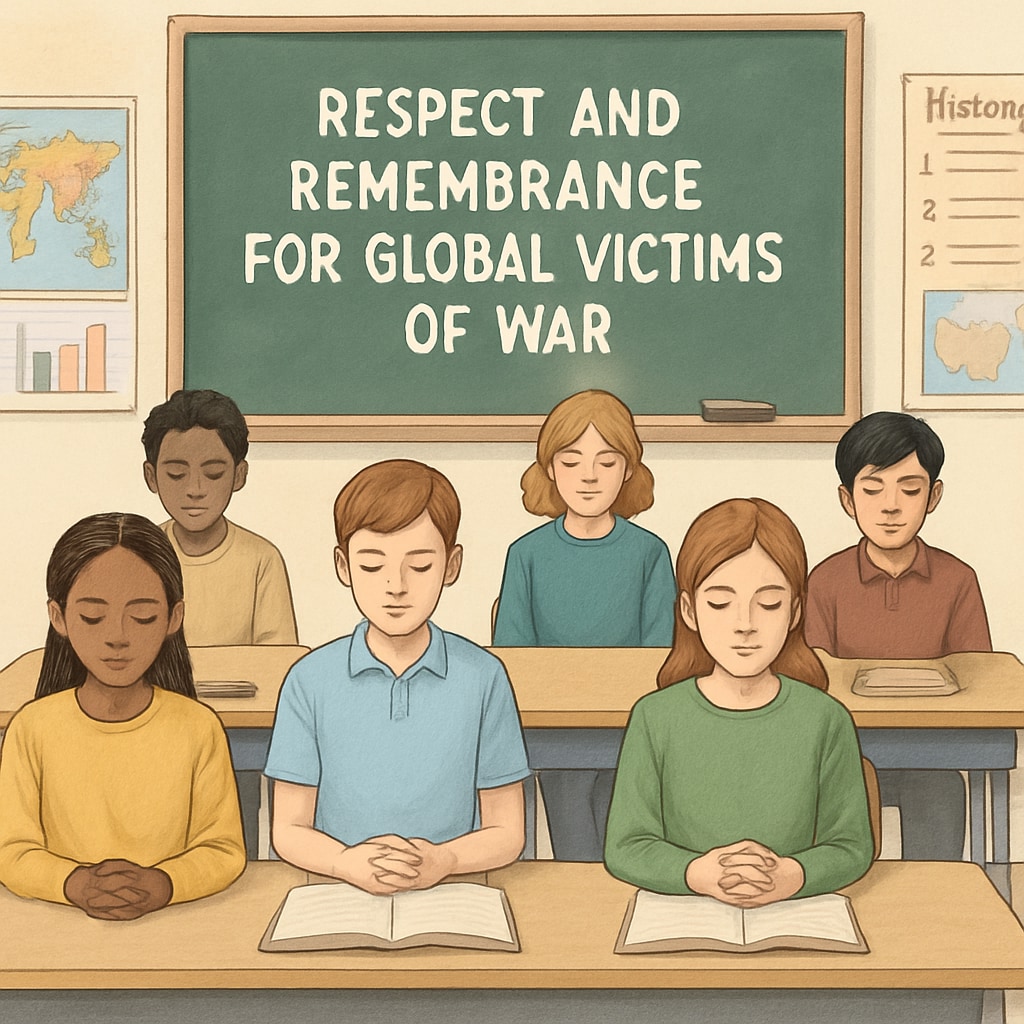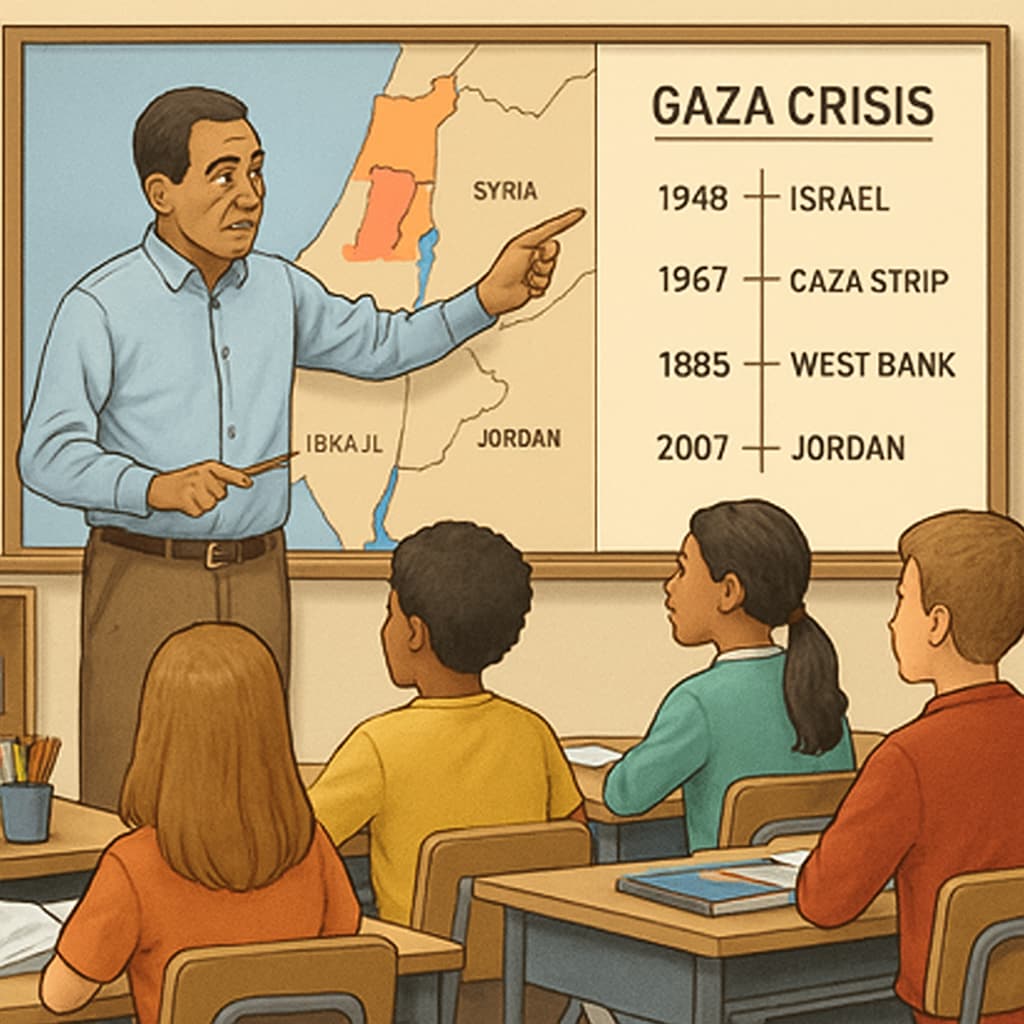In the wake of the ongoing humanitarian crisis in Gaza, many schools have chosen to dedicate time for a moment of silence as an acknowledgment of the immense suffering experienced by civilians. However, the decision to generalize these moments of mourning to honor “all global war victims” has sparked a heated debate. This “generalized mourning” raises profound questions about the role of schools in addressing specific humanitarian crises and the ethical implications of diluting the gravity of particular tragedies under the guise of political correctness.
While the intent behind such decisions may be to promote inclusivity and avoid controversy, critics argue that this approach risks trivializing the specific context and severity of events like those unfolding in Gaza. It is essential to explore whether such generalization aligns with educational institutions’ responsibility to foster critical awareness and empathy for real-world issues.
The Rise of “Generalized Mourning” and Its Underlying Rationale
Many schools have justified their shift toward generalized mourning by citing the need to maintain neutrality in politically charged situations. For example, administrators argue that focusing solely on Gaza could alienate certain community members or risk being perceived as taking a political stance. Instead, they advocate for honoring all victims of war as a broader, less contentious approach.
On the surface, this reasoning appears empathetic and inclusive. However, critics suggest it reflects a deeper discomfort with engaging in difficult conversations about specific crises. By broadening the focus, schools may inadvertently sidestep their responsibility to educate students about the unique historical, political, and humanitarian dimensions of specific events.

When Generalization Undermines Specificity
The danger of generalization lies in its potential to obscure the unique factors that demand attention and action. For instance, the crisis in Gaza is not merely another instance of global conflict—it is a distinct humanitarian emergency with its own geopolitical context, history, and disproportionate civilian toll. By merging this tragedy into a broader narrative of “all war victims,” schools may inadvertently diminish the urgency and specificity that such crises warrant.
Furthermore, generalization can lead to confusion among students. Without clear context, younger learners may struggle to understand the underlying causes and consequences of specific conflicts. This lack of clarity risks fostering apathy rather than empathy, as the gravity of individual events becomes lost in a sea of generalized suffering.
Critics argue that this form of “political correctness” does more harm than good, as it prioritizes avoiding discomfort over fostering meaningful understanding. The question, therefore, is whether schools are sacrificing their educational mission in favor of risk-averse decision-making.
Balancing Sensitivity and Responsibility in Education
So, how can schools navigate this ethical dilemma? The answer lies in striking a balance between sensitivity to diverse perspectives and a commitment to truth and specificity. Educational institutions have a unique opportunity—and responsibility—to equip students with the tools needed to critically engage with complex global issues.
Here are some practical strategies schools can adopt:
- Contextual Education: Provide students with age-appropriate historical and political context for specific crises, ensuring they understand the unique factors at play.
- Encouraging Dialogue: Create safe spaces for students to discuss and express their thoughts on sensitive topics, guided by trained educators.
- Partnering with Experts: Collaborate with humanitarian organizations and academic experts to develop accurate and unbiased educational materials.
- Transparency: Clearly communicate the rationale behind decisions, such as moments of silence, to foster trust among students, parents, and staff.

The Ethical Imperative for Courageous Education
Ultimately, the debate over generalized mourning highlights a broader challenge in education: the tension between avoiding controversy and addressing uncomfortable truths. Schools must recognize that their role extends beyond imparting knowledge; they are also responsible for shaping empathetic, informed global citizens. This requires courage—the courage to confront difficult topics head-on and to provide students with the tools to navigate the complexities of the world.
In the case of Gaza, this means acknowledging the specific suffering of its people while fostering a broader understanding of global conflicts. It is through such nuanced and courageous education that schools can truly honor the victims of war—not by diluting their stories, but by ensuring they are seen, heard, and understood.
Readability guidance: This article uses short paragraphs, clear transitions, and bullet points to enhance readability. It ensures a balance between active and passive voice while maintaining a professional tone. Images are strategically placed to complement the narrative.


